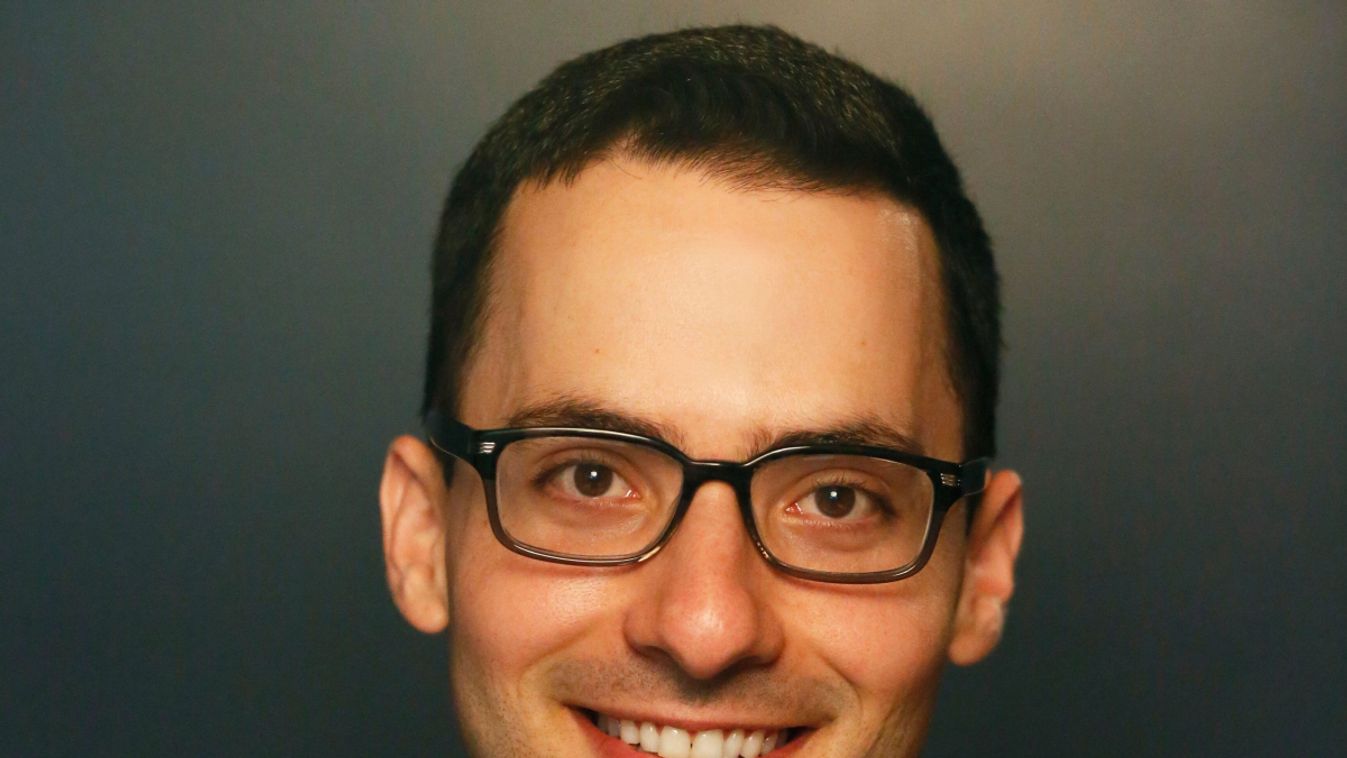Csak két perc: videón a legdurvább ukrán fenyegetések Zelenszkijtől a rettegett ukrán őrnagyig

Magyarország katonai megszállásától a választási eredmények megtámadásáig – minden belefér az EU-s csatlakozást követelő ukrán megszólalók szerint.

Unlike libertarian or progressive interpretations of the Constitution, which largely seek to “constitutionalize” libertarian or progressive political preferences, a conservative’s “originalism” would recognize that the Constitution leaves most political questions to the deliberative, democratic process – Ilan Wurman associate professor at the Sandra Day O'Connor College of Law at Arizona State University pointed out in a conversation with Lénárd Sándor, researcher at the National University of Public Service.

The past decade as well as the current events in the US show a deep divide in the country. Christopher Caldwell from the Claremont Institute argues that that the United States now has two constitutions. How in your view does this divide reflect a rift in terms of the American Constitution and of the values of the Constitution?

I do think there are at least two visions for the Constitution, but I’m not sure I agree with the division that Christopher Caldwell sees. His argument, as far as I understand it, is that many civil rights laws, or nondiscrimination laws, at least as applied today, are inconsistent with the guarantees in the Bill of Rights and elsewhere in the Constitution, perhaps especially as applied to religious rights. I’m not sure I disagree with Caldwell in terms of how such nondiscrimination laws have been applied to free exercise (of religion) and speech issues, but I do think most nondiscrimination laws are consistent with the Constitution.
Indeed in my most recent book The Second Founding: An Introduction to the Fourteenth Amendment, I argue that the Privileges or Immunities Clause of the Fourteenth Amendment was an antidiscrimination provision with respect to civil rights under state law. And many public accommodations, like “common carriers” and inn keepers, were considered quasi-governmental actors that could not engage in discrimination. I think you could apply this logic, by the way, to social media companies today, too.
To the extent a private business holds itself open to the public, as a public accommodation, I see no problem in requiring that they do not discriminate. Of course, the real issue is requiring private businesses not to discriminate in the provision of private services—forcing a baker, for example, to create a cake for a same-sex wedding. Although the United States Supreme Court hasn’t weighed in on these issues as much as it might in the coming years, I agree that forcing individuals to provide private services in the name of nondiscrimination probably violates a host of constitutional guarantees. But again, the matter is different when we are dealing with public services and public accommodations. And the matter might be different if there were only a few providers of a particular good or service, and widespread discrimination against a group of people. We are starting to see more of that today from social media companies against conservatives, by the way.
More generally,
I do think there are at least two different constitutional visions in this country.
One vision sees the Constitution as the vehicle for achieving everything that is good and just in the world; this vision articulates a role for judges whereby they fashion the Constitution in their own image of justice and fairness. The other vision—the original constitutional vision—sees the Constitution as balancing individual liberty and self-government, and creating a framework in which people of goodwill can reasonably disagree through the course of ordinary political discourse and action.
You mentioned the current dilemma of social media. In the words Justice Kennedy they are modern “public squares”. It is true that an increasingly large chunk of public speech currently takes place on platforms. The current regulation, however, shows defects. If one holds them responsible as publishers, they will say they are platforms and not publishers. However, if one demands access to their platforms they will insist that they are publishers with the right to block both contents and persons. Their influence has become one of the primary constitutional dilemma of today. How, in your view, should one address this dilemma?
That is a fantastic question and I think your intuition is exactly right. They are immune under current federal law (something called “Section 230”) from liability for content that third parties publish on their platforms. And that obviously makes sense. But if the companies start to act as publishers who do in fact police the content of users of their platforms, and they do so largely to silence conservatives, then one wonders why they should not also be treated as publishers for purposes of all third-party content. But I’ll push back on one thing you’ve said. I’m not sure this is a constitutional dilemma. I think it’s instead a political or legislative one. The First Amendment to the U.S. Constitution may not apply to private companies, but nothing prevents Congress from enacting nondiscrimination laws that would require these social media companies to act like common carriers—they would have to give everyone equal access to the platform, unless the platform was used for actual illegal conduct. It’s certainly plausible to think that they’re the new “public square” and that the First Amendment should apply to them, but we don’t have to go that far just yet—Congress can solve this problem, too.
The National Constitution Center recently organized a Constitution Drafting project that brought together three teams of leading constitutional scholars: a team libertarian, a team progressive, and a team conservative in order to draft and present their ideal constitutions. Could you shed lights on what the major features and values of an ideal conservative constitution are and whether and how the current US Constitutions reflect those ideals?
I am honored to have had the opportunity to lead “team conservative” for the Constitutional Drafting Project. I think the best way to articulate what makes our constitution “conservative” is to distinguish it from the other two drafted constitutions. The libertarian team focuses, unsurprisingly, on liberty. The progressive constitution, on the other hand, focuses on equality and enhancing democratic politics. I think a conservative would recognize that a constitution for a free society like ours cannot just focus on one of these ideals over another; many of the aims of a free society are in inescapable tension with one another. For example, liberty and self-government are in tension: it is often popular majorities that infringe on the rights of minorities. And self-government itself reflects a tension between responsiveness to popular will, on the one hand, and the need to refine and moderate that popular will, on the other.
Self-government to the conservative, in short, means government by reflection and choice. We thus emphasize Madisonian deliberation. How do we get our government to respond to the people’s needs, but without being led by popular whims and passions? The most controversial proposal we made was to make our Senate even more deliberative. We provided for one senator per state (for a total of 50 senators), who serve a single, nine-year term, with no chance for reelection. We also reintroduced appointment of senators by the state legislatures—a mechanism repealed by the Seventeenth Amendment to the U.S. Constitution—and we also require our senators to take a pledge to legislate in the long-term national interest.
In short,
conservatives recognize the tensions inherent in free societies,
and a constitution should protect a large measure of liberty while also creating deliberative structures whereby the people as a community can govern themselves and deliberate on moral, political, social, cultural, and economic issues. We think to a large measure our own, actual Constitution already accomplishes that, but there’s always room for improvement.
What we could see throughout the past century a massive power transfer from States to Federal Government while the principle of Federalism has been continuously weakening in America. The repeal of the Seventeenth Amendment might be a good start to remedy this trend. Do you consider it as problem and if so how would you address it?
The problem with simply repealing the Seventeenth Amendment is twofold. Prior to that amendment, many states already required by state law that the state legislature appoint as senator the person who won the popular vote. And there was also a lot of corruption—it is easier to buy off a few legislators in exchange for a senatorial appointment than it is to buy off the entire electorate. I don’t think corruption would be such a problem today, given modern American culture and the scrutiny from the media and the variety of federal anti-bribery and anti-corruption laws. But a state could certainly require the legislature to appoint the popular-vote winner. That’s why in our draft constitution for that NCC project, we actually prohibit a state from enacting any law that would otherwise affect the choice of the state legislature as to whom to appoint.
But to your larger point, I do think state legislative appointments would help. That would make senators care more about the states’ interests qua states. That’s an important institutional protection for state governments. I think the bigger problem though is cultural. It’s very hard for many people to accept that it is actually
desirable for there to be a diversity among the states.
If some states want to experiment with the definition of marriage, whereas other states want to have more religion in the public square or to teach “intelligent design” in school, that can actually be a good thing. But if you firmly believe in your particular worldview, it is very hard to accept that other people might disagree and it is very hard to ignore the people who live under those regimes that you think are less free or less progressive. So at the root of this is really a cultural issue. Can we accept that people disagree, and can we accept that diversity in culture and society and government policy is a good thing? We need to instill that tolerance for diversity—true diversity, that is, one that accepts traditional Christians and conservatives, and intellectual diversity, as well as ethnic diversity—and I fear that tolerance is something we are well on our way to losing in America.
In your superb and illuminating book, A Debt Against the Living: An Introduction to Originalism you showed how originalism as a method constitutional interpretation forged ahead for the past decades. Could you explain how originalism can solidify the conservative idea of constitutionalism and how influential this method of constitutional interpretation has become in the federal judiciary?
I do not think that originalism is necessarily a means to solidify conservative political results, but rather the originalist Constitution leaves many questions of political economy and culture and morality to the democratic process where libertarians, progressives, or political conservatives could win the day. Unlike libertarian or progressive interpretations of the Constitution, which largely seek to “constitutionalize” libertarian or progressive political preferences,
a conservative’s “originalism” would recognize that the Constitution leaves most political questions to the deliberative, democratic process,
where such questions belong. I do think this method of originalism is increasingly influential, especially on the Supreme Court, where probably two-thirds of the Justices now adhere to some form of it.
In Europe there are increasingly vocal debates about a specific European way of life as well as about the values that connect Europeans throughout the continent. Interestingly, the Claremont Institute also launched a project that aims to address the uniqueness of the American way of life. Is there a unique American way of life and if so what values or rights could be considered as integral parts of it?
I do think there is something to “American exceptionalism,” as we would call it here. At the root of it, I think, is Margaret Thatcher’s old saying to the effect that
Europe was founded by history and America was founded by philosophy.
I do believe we Americans have the most enduring and successful free Constitution in modern history. We believe strongly in the ideals that contributed to that Constitution—individual liberty, personal responsibility, and hard work, as well as the need for civic associations and civic responsibility. I have not spent much time in Europe, but I do suspect that the European way of life focuses much more on communitarianism, by which I mean Europeans probably accept a much larger measure of government intervention and rule than Americans accept. In Europe people largely associate through their governments, whereas in America people still largely associate through private organizations and civic groups. But again, this is just my impression, and maybe there are more similarities than I realize. Having said that, I do suspect that America is becoming more like Europe across all of these characteristics.
How do you see the role of the future generations in preserving a conservative approach in law and elsewhere? And what are in your view the responsibilities of today society for the future generations?
Starting with the second question first, I think we have to recognize that freedom and liberty and equality are not the natural conditions of mankind. The vast bulk of recorded human history has been a history of misery and poverty and war, and government tyranny and illiberalism. It is only in a small span of time, in a small sliver of the world—the Western World, largely—that mankind has been able to overcome that history and dramatically improve its condition. But this new condition is not the natural state of things. It has to be defended and explained. It is so easy to slip back into the ways of government control—which is the way things had always been done. So we have to defend these improvements of the Western World of the last few hundred years for future generations. And I think
there is a big role to play for conservative lawyers today and in the future.
After all, what they seek to conserve, at least here in America, is the principles of the American Constitution—self-government, ordered liberty, and equality under law. If we can conserve that approach to law and society, I think we will have bequeathed to future generations a government worth having and a life worth living.